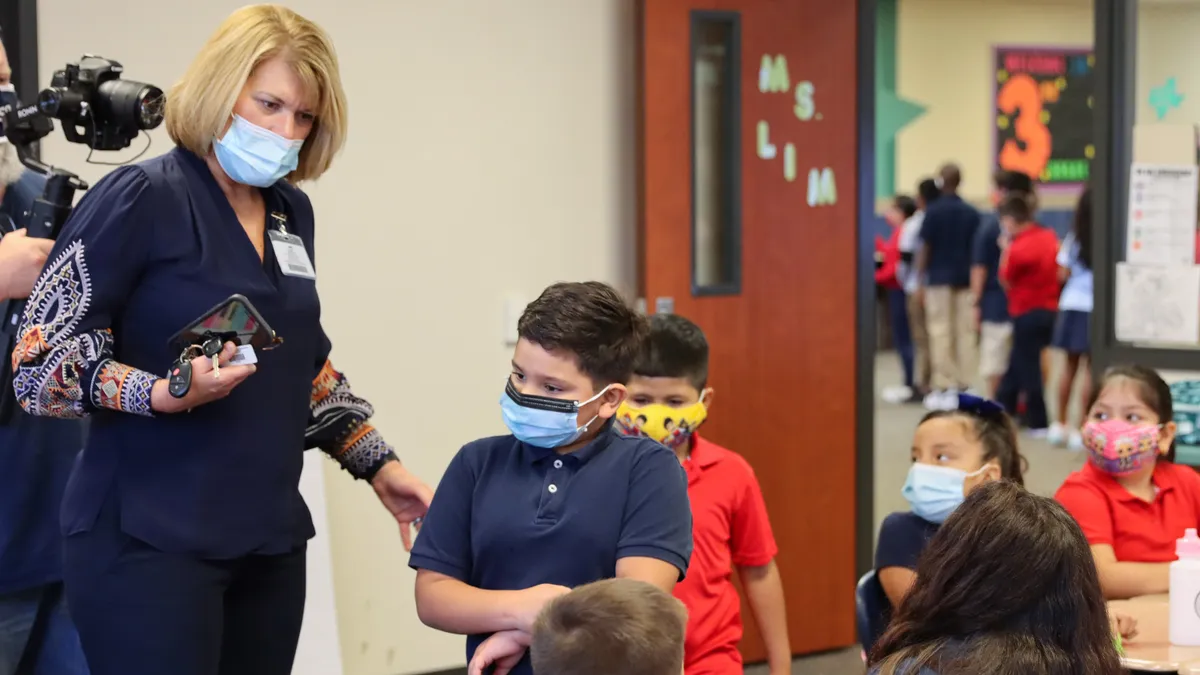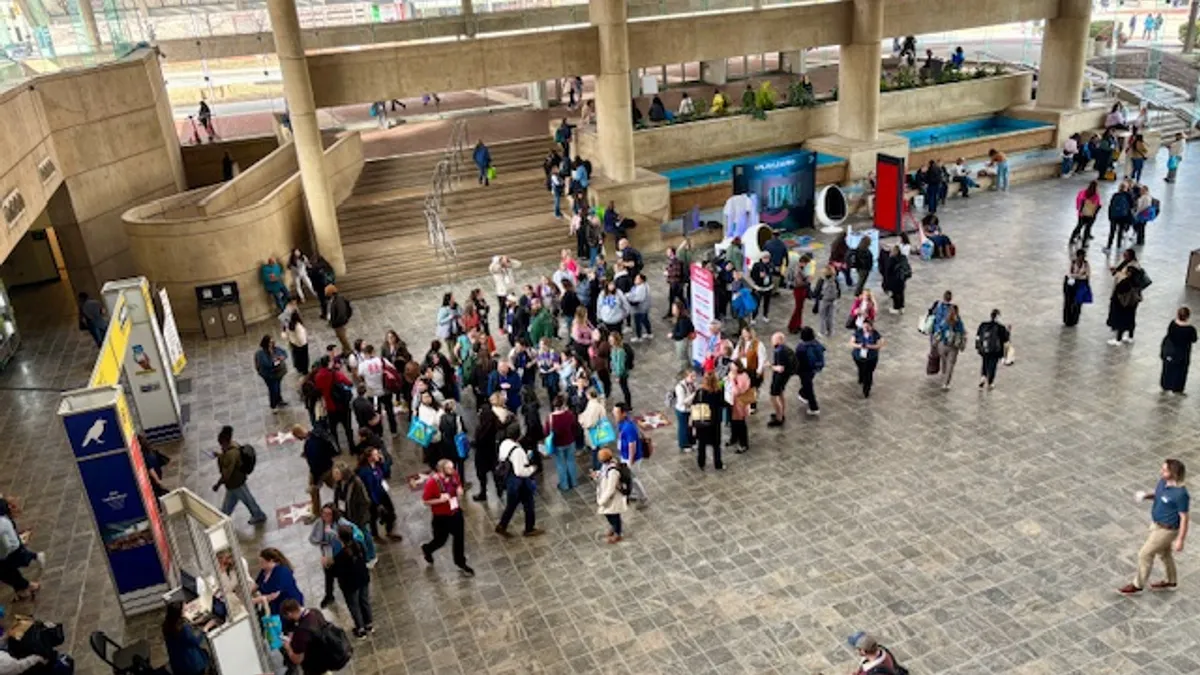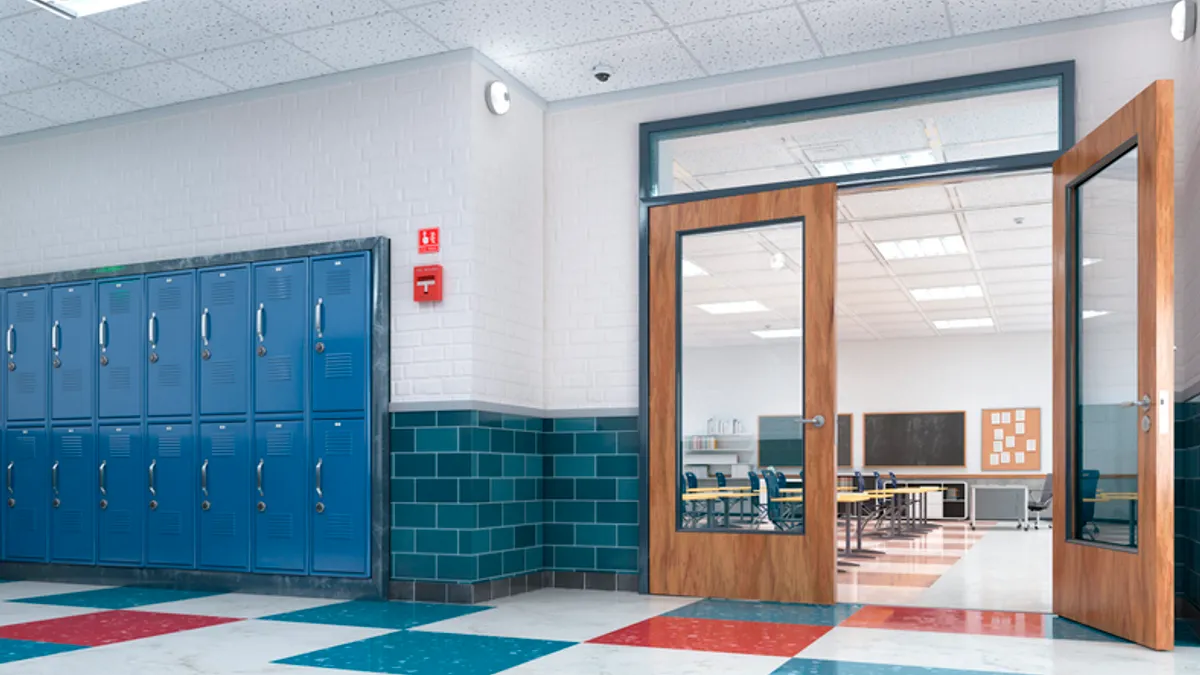Corey Mohn is not a big fan of forcing students on a “right” path. Instead, the president and CEO of CAPS Network, a nonprofit supporting education-to-employment pathways, says students should have the right to explore their options and find the direction that makes sense for them.
“[It’s] students having an authentic experience, developing those durable skills and identifying what they’re interested in and what do they truly need to do to go in with their career, and having them have that sense so they can make an educated decision,” says Mohn.
The traditional choice of enrolling in a four-year college program has hit headwinds, notably because of the price of a degree. More than half of adults who never enrolled or enrolled and didn’t complete a degree said cost was their biggest barrier, according to a May 2023 Gallup and Lumina Foundation report.
Some states are working at bridging the gap to college credits through programs that underwrite community college classes for free. Massachusetts, for example, has proposed spending $20 million through a program called MassReconnect to give residents 25 and older funds to cover community college tuition, books and other costs if they don’t yet have a college degree.
A number of organizations are also stepping in to support students with ways to underwrite college credits or options that pave the way to better career opportunities, from job training and paid internships to earned credit toward an associate's degree — all before students complete their high school diplomas.
At the center of each initiative is the goal of giving students a choice.
“We’re not here to direct students to a specific path like ‘college only,’ and we’re not directing them to a trade,” says Jonathan Johnson, founder and CEO of Rooted School Foundation, a nonprofit focused on improving upward mobility for youth. “We see the high school experience as a place of exposure and a time to introduce students as intensively and authentically as possible to a myriad of experiences in their neighborhood and beyond.”
Here are four approaches being taken to nontraditional post high school pathways.
Rooted Schools
As a self-described first-generation college student, Johnson’s path to founding Rooted School Foundation started when he needed to take over his college costs in the first year of school, he said. Later, as a teacher, Johnson saw the struggle his students faced to “make ends meet,” he said.
“I started wondering about the pathways to getting young people good money much earlier in their lives,” Johnson said.
The foundation’s primary focus is to build what Johnson calls “upward mobility,” and close a wealth gap for Black and Latino households. Rooted School Foundation does so through opportunities offered across its public charter schools and programs in New Orleans, Indianapolis, and Vancouver, Washington. The schools link employers with students, giving learners resources to find internships that can lead to full-time jobs, paid fellowships or pursuing college after they finish high school.
Among students who have landed positions are one of the program’s early graduates, an IT help desk specialist at Oxford Health who “doubled her household income” after she was hired, Johnson said. At 19, she’s now living in her apartment and is “completely self-sufficient.”
“We want to create as many pathways to financial freedom and upwards mobility as possible,” Johnson said.
unCommon Construction
Through unCommon Construction, students have an opportunity to build skills and earn a paycheck while in high school. Founder and Executive Director Aaron Frumin launched the New Orleans-based program after a path that led from dropping out of college to working with organizations including the American Red Cross, AmeriCorps and Habitat for Humanity. He then finished his degree and found his way into the classroom as a teacher through Teach For America.
After a few years, Frumin returned to New Orleans to launch his program to help link high school students with opportunities to acquire skills and earn money and internship credit while building a house over the course of a semester.
Students also work toward “Equity Award Scholarships” that can be used to pay for nearly anything from industry certifications to union dues to groceries to furnishing a dorm room. The key to earning those awards is showing up for work when you’ve committed to your schedule.
“You might finish the semester with only 70% attendance,” Frumin said. “If that’s the case, you’re not vested in your equity award.”
Students must be at least 16 to apply, and the 12-week, 100-hour program is run like a class as they work to build a house from start to finish. But there are units each student needs to complete, much like lesson plans, beginning with their first interview.
“We do that by presenting young people with a job opportunity, having an actual process to apply for a job, and then they accept or decline the job,” Frumin said.
Frumin says the experience, cloaked as a learning opportunity, delivers valuable skills to students who may choose to go to college or not. From learning how to show up to work on time to interviewing with a future employer, these are tools he says are as crucial to future success as academic success.
Gates Foundation
Accelerate ED, a Bill & Melinda Gates Foundation program launched in 2021, is focused on providing opportunities for Black, Latino and low-income students for an accelerated learning path that leads to an associate's degree within one year of completing high school.
One Accelerate ED partner, Arizona State University, is helping high school students earn Google and Amazon certificates before they graduate, said Sylvia Symonds, senior program officer with the Gates Foundation’s Pathways team, which builds avenues for economic equity for Black and Latino students.
As of May 2022, Accelerate ED had awarded grants of up to $175,000 to teams in 12 states to build programs helping students earn college credits faster — and at a lower cost — and to also discover other options beyond the typical college trajectory.
“There's a whole bunch of intertwined benefits here of everything from the student's mindset to the practicalities of, actually, how do you transition from high school to college and be well set up ultimately to have a credential of value and connections to the workforce that are going to really smooth those transitions all along the way,” says Sara Allan, director of Early Learning and Pathways at the Gates Foundation.
CAPS Network
The CAPS Network partners with individual schools and districts, creating community-based opportunities for students before they finish high school. Students take assessments to gauge interests and strengths, and then they use that information to help them pursue a direction that sounds good to them at that time.
Flexibility is central to CAPS’ mission, allowing students to change their direction while still in high school. As Mohn points out, even adults change their minds.
“We have always put a big focus on this,” he said. “The more you can uncover your purpose and think more about the work that matters to you, the better off you’re going to be.”
As a result, CAPS supports students who find a new passion, allowing them to jump into new courses and even bypass prerequisites. A biology student, for instance, can shift to engineering and still be allowed to work on an industry project in class while having it streamlined to their abilities. The result is students finding a path that works for them, whether that’s college now, later or never.
“It’s less about whether or not students should go to college or get an advanced education,” Mohn said. "Sometimes, the best path is to go to high school, build your network, get a paid internship [or] a summer job somewhere that’s interesting, and evaluate your options.”



















